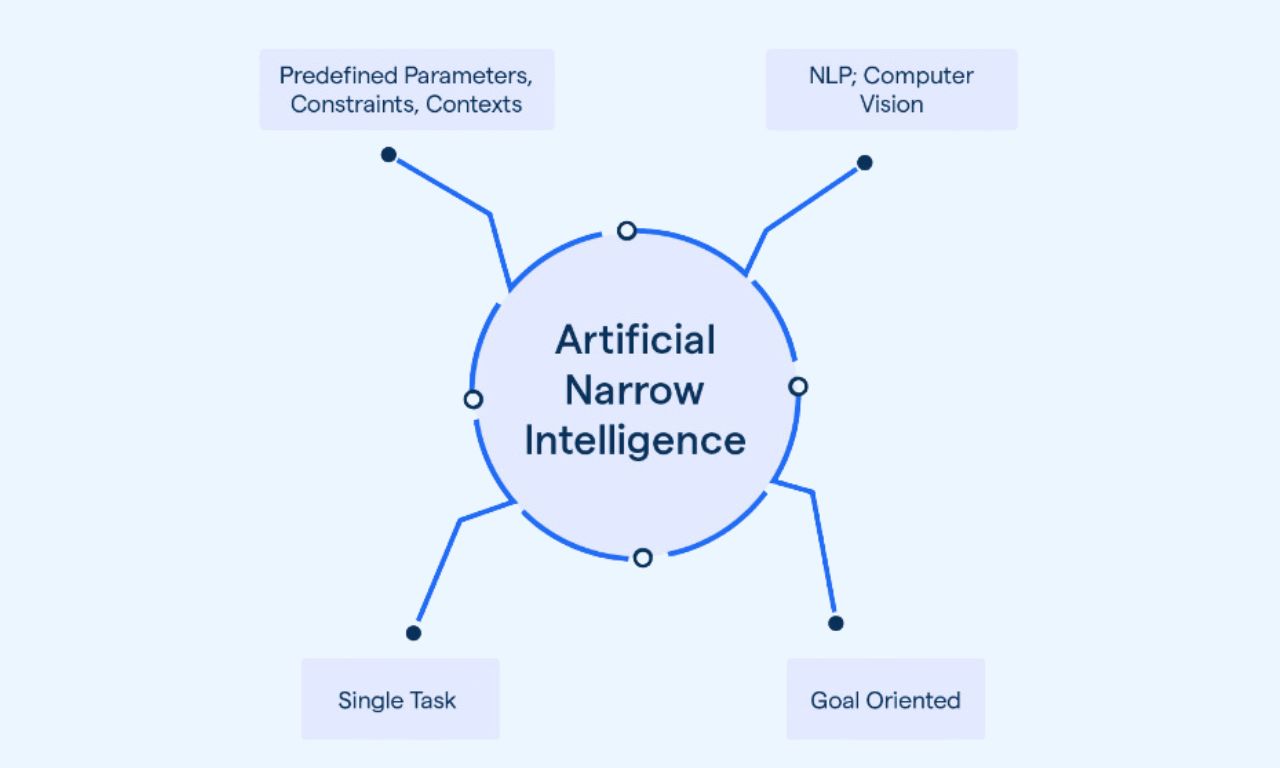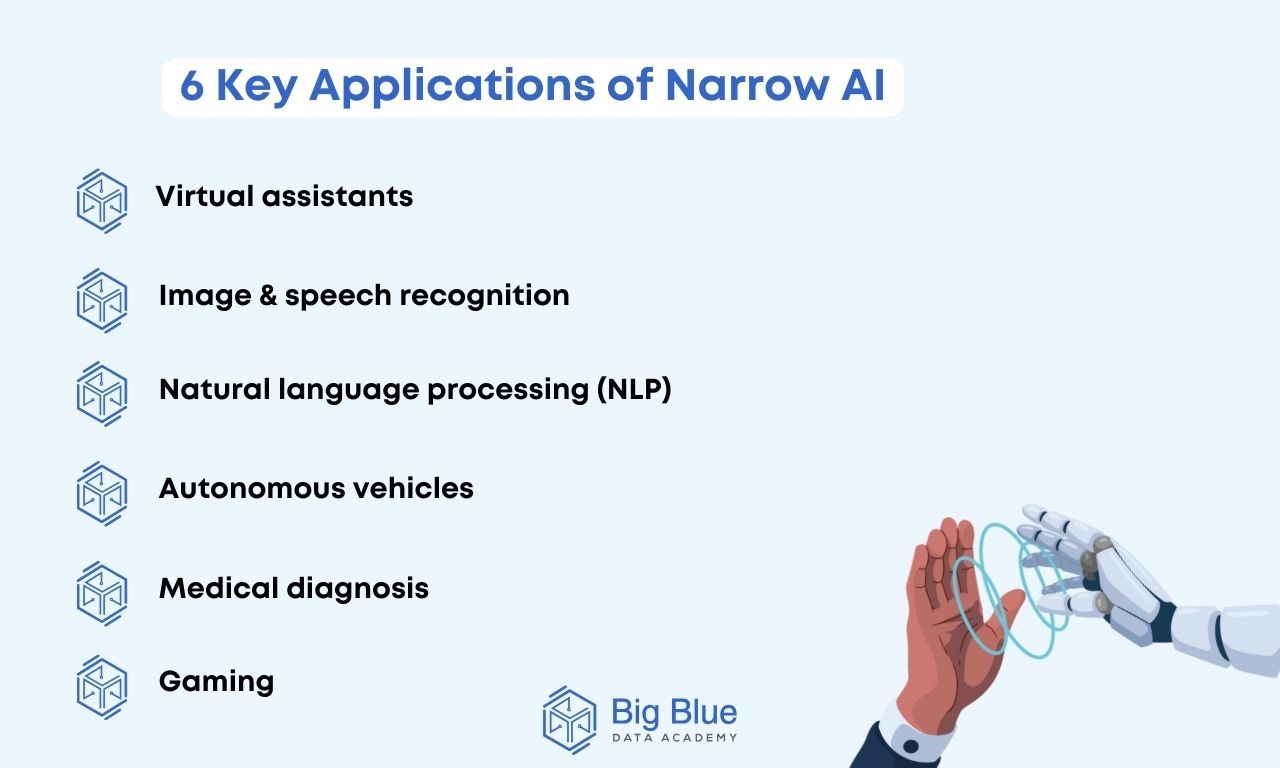What Is Narrow AI and What Are Its Applications?
Nowadays, Artificial Intelligence (AI) has become a buzzword synonymous with the future of innovation and continuous evolution.
However, not all AI systems are created to fulfill the same purpose, so it's crucial to distinguish between different types of AI.
Narrow AI refers to artificial intelligence systems designed to perform specific tasks, differing from General AI, which aims to replicate human intelligence.
In this article, we will explore:
- What Narrow AI is and its advantages
- Its limitations
- Some key applications
Let's start with a basic definition.
What Is Narrow AI and Why Is It Important?
Narrow AI, also known as Weak AI, refers to AI systems designed for specific tasks or closely related sets of tasks.
It operates under predefined rules and can perform tasks like face recognition and language translation.
While it lacks the ability to apply knowledge beyond its programmed scope compared to General AI (also known as “Strong AI), Narrow AI impresses in its fields of application.

Narrow AI systems can analyze large datasets quickly and with greater accuracy than humans, identify patterns and trends, and make predictions based on data.
Additionally, they have the ability to learn and improve over time through techniques like Deep Learning, adapting their algorithms based on processed data.
Now that we've covered the basics of Narrow AI and its significance, let's explore some of its limitations.
Limitations of Narrow AI
Despite the various advantages of Narrow AI, it has some limitations.
These systems, designed for specific tasks, struggle to perform tasks outside their designated scope.
Moreover, their performance heavily depends on the quality and quantity of the training data.
For example, in image recognition, if an AI system is trained on a dataset lacking diversity, it may face challenges in accurately recognizing the faces of individuals from certain ethnicities, leading to potential biases and inaccuracies.
Additionally, compared to General AI, Narrow AI systems follow pre-programmed instructions, resulting in limited learning and understanding capabilities.
What Are the Key Applications of Narrow AI?
Narrow AI has a wide range of applications across various industries.

Here are some fundamental applications:
Application #1: Virtual assistants
AI-supported virtual assistants like Siri, Alexa, and Google Assistant are essential Narrow AI applications.
They understand and respond to voice commands, automating tasks such as setting reminders, playing music, or providing weather updates.
Application #2: Image & speech recognition
Narrow AI is highly effective in image and speech recognition.
It is used to detect and classify objects in images and can be applied in facial recognition systems, sorting and categorizing different faces.
Application #3: Natural language processing (NLP)
Moreover, Narrow AI plays a pivotal role in Natural Language Processing (NLP).
In particular, Narrow AI is used in the NLP industry to perform tasks such as:
- Text categorization based on its content
- Sentiment analysis, identifying the sentiment expressed in a piece of text
- Text translation from one language to another
Application #4: Autonomous vehicles
Another important application of Narrow AI is in the field of autonomous vehicles.
Autonomous vehicles use AI to interpret sensory data and make real-time decisions on the road.
Application #5: Medical diagnosis
Artificial intelligence has brought revolutionary developments to the health sector as well.
Narrow AI uses algorithms to diagnose diseases, analyze medical images, and predict patient outcomes.
Application #6: Gaming
Narrow AI is used extensively in the gaming industry.
For example, many strategy games like chess use Narrow AI to generate AI opponents.
The AI system is trained to make optimal moves based on the current state of the game, simulating the decision-making process of an experienced player.
Also, Narrow AI can be used to personalize the gaming experience by adjusting the difficulty level of a game based on the skill level of each player.
Ramping Up
We've explored what Narrow AI is, its advantages and limitations, and some key applications.
Narrow AI and Artificial Intelligence, in general, are constantly evolving, revolutionizing various business sectors by automating once time-consuming processes.
So, if you are excited and want to read more about AI and its applications, follow us for more educational articles!


.jpg)